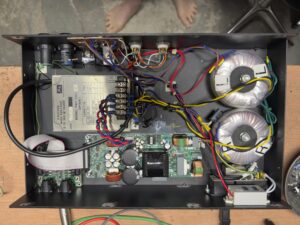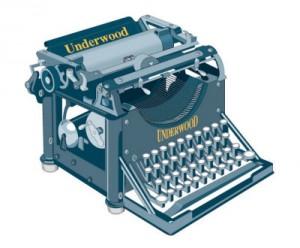Roger Skoff writes about a basic split in our hobby
I admit it; I don't own a smartphone. And for driving instructions, I have to go to my home computer. I've also never owned an Amazon "Kindle" or any other such device, and I don't intend to. Does that make me a Luddite? Maybe, but I don't think so.
Being at least theoretically retired (but still working seven days a week for consulting clients or on my own business projects) I'm home a lot, so I have my desktop computer and land-line phone right at hand whenever I need to make or receive a call, send or receive a message, or write articles like this one for the various publications I write for. The result is that I use my cell phone only for when I'm on the road and need to tell people that I'm going to be late to wherever I'm trying to get to, and, believe it or not, I only put a maximum of thirty minutes a month on it in actual talk-time. As to computer functions, my desktop does all that I need or am willing to use, and I don't tweet or text, ever.
That does make me different from a lot of people—especially the younger generation, who seem to rush to accept every new tech product as it comes along. Of course it does, and that same difference also carries over into my HiFi hobby: I do have headphones, for example—six pairs of them, including Stax Lambda Pro, Stax Sigma, Stax SR80, and the genuinely wonderful 3 and 4 driver IEMs from 1More plus their latest 3 driver over-the-ear model that simply trounces anything I've heard anywhere near its price point. I love the IEMs and the 1More OTEs are terrific because they can be driven directly off a receiver or even off some of my CD players, but headphones are not my "main squeeze,” and I still prefer speakers for most of my listening.
Yes, even though it's getting hard to find a CD player anywhere other than Walmart or Amazon nowadays, and Best Buy has announced that, after July of this year, it will no longer sell CDs, I still do play and listen to CDs. (in my car and on three players in two different rooms). I also have four (count 'em) turntables, and many, many LPs to play on them, but I have no dedicated streaming devices and buy no downloads. In fact, the only time I listen to streaming music is when I'm working at my computer (at times like this) and want background music for what I'm doing.
In short, I'm technologically "out of it" by some people's standards. I'm not alone, though. Just a few days ago, I went to the factory of a company that manufactures some of the best and best-sounding of today's High-End audio electronics (tubes, of course, even though for professional reasons I prefer solid-state). In their sound room, although they were using only the very best other equipment to show-off their electronics, the only source component they had was a turntable, and they had no digital anything at all. I guess you might say they're also technologically "out of it,” but their stuff is sonically, "to die for,” even though it's so expensive that most people might have to… (and then, if they could arrange it, use their own insurance money to pay for it.)
It seems like our hobby is breaking-up into two separate sides: the audio "out-of-Its"(like me) and the "compulsive tech-lovers." Or to, perhaps, put it a little more accurately; those of us who prefer "hard" media (records, tapes, CDs, DVDs, etc.) that we can see and touch and perform the necessary "rituals" over before playing them, and those who prefer the "soft" (streaming and downloaded) media, where all of their "library" can be stored in one small device and anything else they might want can be instantly available for a small fee.
For those of you who may have noticed, I recently parted company with one of the publications that I had written for for years: The publisher believes that his audience wants news and information only about the "cutting edge" of audio technology, and wanted me to stop writing about turntables; speakers; how things work; HiFi history; and other "old news"; and to write, instead, just about the new things that he believes his audience wants to read about.
That's why I no longer write for him: I can't do as he asks; I'm not an expert in what's "new and hot"; I don't know about the latest computer-based audio technologies; and, frankly, I don't really want to. I like having my music in physical form. And, as the continuing existence of printed-paper audio magazines; the ongoing sales of analog audio equipment and "physical" (CDs and such) digital recordings seem to prove, I'm not alone.
And there's not just a few of us, either. Quite obviously the manufacturers of physical media and the products to play them agree with me. So do companies like I just visited, whose products (amplifiers and preamps, mostly) will work with either analog or digital—either "physical" or "soft"—media. So do all of the people who buy from them, and so do the tens or hundreds of thousands of audiophiles who already own valued, and sometimes quite massive, collections of physical recordings and who worry that even the much vaunted "lossless" recording techniques now available might actually result in losses of some kind if they were to try to use them to copy and replace their beloved physical collection of music. So do the people who, seeing others copy and sell-off their collections, buy them, sometimes even finding musical gems at "sell-off" prices that they would never be able to acquire otherwise, and add to their own physical collections of music even as others part with theirs.
And, of course, there's still one more group: the "halfers"—the people who embrace both sides of the issue and, while happily acquiring new computer-based toys and goodies to play and store the "soft" media, continue to keep and treasure their physical media and its playback gear, as well. Will these people eventually turn to one side or the other, becoming either full-fledged Techies or die-hard supporters of physical media and nothing else? Or will they continue as they are, and find that some of the heretofore committed members of the other two groups are—as with the return of tubes after the introduction and dominance of solid-state or the return of the LP after CDs became the near-exclusive market leader—coming back to a mix of both physical and soft media, and becoming "halfers,” themselves.
Frankly, I have no idea. Something's going on here, but I think it's too early to tell what it is. What do YOU think?
Photograph and image processing by David W. Robinson


































